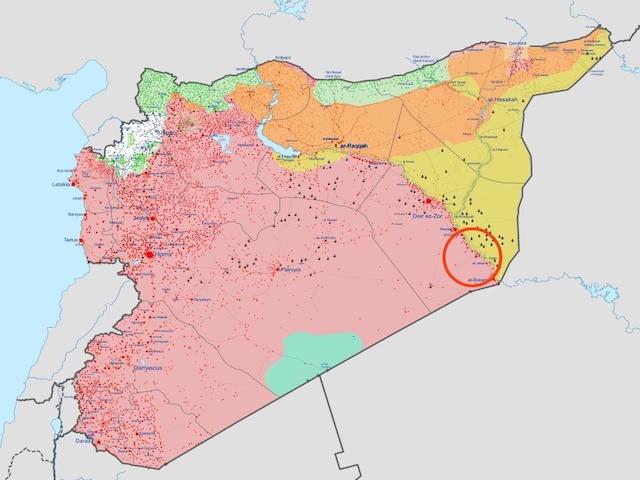In the wake of a series of targeted strikes that have taken out their top leadership, Iran's Revolutionary Guards have strategically reduced the deployment of their high-ranking officers in Syria, a move prompted by a series of precise Israeli airstrikes. These strikes have inflicted significant losses on the Iranian forces, including the death of over half a dozen members since December, notably one of the Guards' top intelligence generals. This decision marks a pivotal moment in the Guards' involvement in Syria, where they have been a key player since their arrival a decade ago to support President Bashar al-Assad in the ongoing Syrian conflict.
According to a Reuters report, the recalibration of Iranian military strategy in Syria is partly in response to calls from Tehran's hardliners for retaliation against Israel. However, Iran is keen on avoiding direct entanglement in the broader conflicts across the Middle East. This cautious stance underscores the complexity of the regional dynamics, especially in the aftermath of the attack by Hamas on Israel on October 7, which has had far-reaching implications across the region. Despite these pressures, Iran remains committed to its strategic position in Syria, which is central to Tehran's influence in the Middle East.
🚨🚨🚨
— Omar Abu Layla (@OALD24) February 1, 2024
EXCLUSIVE:
The #IRGC militia in the central part of #DeirEzzor, eastern #Syria, evacuates all its facilities and positions during the night, returning to them during daylight hours.
All Iran-backed militias affiliated with the IRGC still live in fear of possible U.S.… pic.twitter.com/yvW69b4OG5
Iran's support for Hamas and its role in the "Axis of Resistance" against Israeli and U.S. interests illustrates its indirect engagement in the conflict. By pulling back its senior commanders and relying more on allied Shi'ite militias, Iran is adapting its approach without diminishing its support for Assad or its regional objectives. The shift towards remote management of operations, with assistance from Hezbollah and other militias, indicates a strategic adaptation to the heightened risks posed by Israeli military actions.
The recent Israeli airstrikes, characterized by their precision, have led to a reevaluation of Iranian military deployments and operational security in Syria. Concerns over intelligence breaches within the Syrian security apparatus have emerged, highlighting vulnerabilities in Iran's military strategy. Despite these challenges, Iran's commitment to Assad and its strategic goals in the region remains unwavering. The recruitment of Shi'ite fighters from Afghanistan and Pakistan, alongside greater reliance on Syrian Shi'ite militias, reflects a continued effort to sustain its military presence and influence in Syria.
Is #Biden's Moment of Truth About to Arrive?
— Uncut Version International (@uncutversion123) February 1, 2024
Unconfirmed reports suggest that KC-135 tankers are being mobilized, signaling a potential escalation in the US military's posture towards Iran. B-2 Bombers may play a key role in sensitive missions. #Tehran #MiddleEast #IRGC #Syria pic.twitter.com/qqY3m6C6wm
The dynamics of Iran's involvement in Syria are further complicated by the presence of other regional players, including Russia. The evolving relationship between Tehran and Moscow, marked by cooperation and potential competition, adds another layer of complexity to the regional power landscape. The anticipated treaty between Russia and Iran signifies a deepening of ties, yet the balance of influence in Syria between these two allies remains a point of observation.
In summary, Iran's strategic recalibration in Syria, in response to Israeli airstrikes and regional dynamics, reflects a nuanced approach to preserving its influence while navigating the challenges of direct conflict engagement. This development signifies a key moment in the broader geopolitical struggle in the Middle East, underscoring the intricate balance of power, alliances, and interests that define the region's ongoing conflicts.


